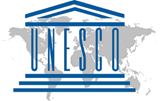A próxima é já no dia 7 de Abril de 2021 das 17:00 às 18:00 em modo zoom (https://videoconf-colibri.zoom.us/j/86109989605)
A participação é gratuita e sem necessidade de inscrição.
Mais informações em:
[rede.APPIA] AmIA_Environments@EPIA2021 :: 2nd CALL FOR PAPERS
[Apologies if you receive multiple copies of this CFP]
———————————- – – – – – – – – – – – – – – – AmIA_Environments@EPIA2021 :: 2nd CALL FOR PAPERS ———————————- – – – – – – – – – – – – – – –
Special Track on Ambient Intelligence and Affective Environments (AmIA Environments 2021) 20th Portuguese Conference on Artificial Intelligence – EPIA 2021 (Online)
7th-9th September, 2021 www.appia.pt/epia2021
———————————- – – – – – – – – – – – – – – – Submission deadline: 15th April, 2021 ———————————- – – – – – – – – – – – – – – –
Ambient Intelligence (AmI) is a paradigm emerging from Artificial Intelligence (AI), where computers are used as proactive tools assisting people with their day-to-day activities, making everyone’s life more comfortable.
Affect and social behaviour plays an important role in the development of Ambient Intelligent Environments. Consideration of aspects like emotions, mood, personality traits, and attitudes in human-computer, human-robot, and human-environment interaction, especially insofar as they provide better or more “natural” support for humans. These environments should be aware of the needs of people, customizing requirements and forecasting behaviours.
AmI environments may be highly diverse, such as homes, offices, meeting rooms, schools, hospitals, control centers, transport facilities, tourist attractions, stores, sport installations, music devices, etc.
In the Thematic track on AmIA Environments we will create a multi-disciplinary discussion forum that will bring together researchers from the different fields addressed discussing issues in Artificial Intelligence topics included in the Ambient Intelligence and affective environments. Researchers are welcome to present both theoretical and practical works as well as the lessons learned with their application in the varied range of domains. Emphasis will be placed on the presentation of concrete systems, discussion of implementation and development challenges and sharing of conclusions achieved and relevant results.
———————————- – – – – – – – – – – – – – – – CONTRIBUTIONS ———————————- – – – – – – – – – – – – – – –
In order to fulfill these objectives, submissions of substantial, original and previously unpublished work are invited in all areas of Ambient Intelligence and Affective environments. The topics of interest include, but are not limited to: – Applications – Ambient Assisted Living – Ubiquitous Computing – Artificial Intelligence for AmI – Intelligent Environments – Pervasive Computing – Context Aware Computing – Agent & Multiagent Systems for AmI – Mobile Computing – Sentient Computing – e-Health – Context Modelling – AmI for e-Learning – On-line Dispute Resolution – Memory Assistant – Computational models of emotions – Group Emotion – Affect and learning – Artificial characters – Affect and emotion recognition
———————————- – – – – – – – – – – – – – – – SUBMISSION INSTRUCTIONS and PAPERS FORMAT ———————————- – – – – – – – – – – – – – – –
Submissions must be full technical papers on substantial, original, and previously unpublished research. Papers can have a maximum length of 12 pages. All papers should be prepared according to the formatting instructions of Springer LNCS series (Springer Lecture Notes in Computer Science). Authors should omit their names from the submitted papers, and should take reasonable care to avoid indirectly disclosing their identity.
All papers should be submitted in PDF format through the EPIA’2021 submission Website (www.easychair.org/conferences/?conf=epia2021) selecting the track AmIA – Ambient Intelligence and Affective Environments.
———————————- – – – – – – – – – – – – – – – IMPORTANT DATES ———————————- – – – – – – – – – – – – – – –
– Paper submission deadline: April 15, 2021 – Paper acceptance notification: May 31, 2021 – Camera-ready deadline: June 15, 2021 – EPIA Conference: September 7-9, 2021 (Online)
———————————- – – – – – – – – – – – – – – – PUBLICATION ———————————- – – – – – – – – – – – – – – –
Accepted papers will be included in the conference proceedings (Springer LNAI – Lecture Notes in Artificial Intelligence), provided that at least one author is registered in EPIA 2021 by the early registration deadline. Proceedings will be submitted for indexation by ISI Thomson, SCOPUS, DBLP, EI-Compendex among several other scientific databases.
———————————- – – – – – – – – – – – – – – – ORGANIZING COMMITTEE ———————————- – – – – – – – – – – – – – – –
Ana Almeida, Polytechnic of Porto, Portugal (amn@isep.ipp.pt) Sara Rodriguez, University of Salamanca, Spain (srg@usal.es) Goreti Marreiros, Polytechnic of Porto (mgt@isep.ipp.pt) Paulo Novais, University of Minho, Portugal (pjon@di.uminho.pt) Peter Mikulecky, University of Hradec Kralove (peter.mikulecky@uhk.cz)
———————————- – – – – – – – – – – – – – – – CONTACT PERSON ———————————- – – – – – – – – – – – – – – –
Paulo Novais, University of Minho, Portugal (pjon@di.uminho.pt)
———————————- – – – – – – – – – – – – – – – ———————————- – – – – – – – – – – – – – – –
[rede.APPIA] Fwd: [Infos] [CAEPIA 20-21] 4th App and Video Competition (1st call for apps/videos)
[rede.APPIA] Fwd: [GECCO CFP] ACM GECCO Workshop CfP [Deadline fast approaching (April 12, 2020)]: NeuroEvolution at Work @GECCO 2021
Please distribute to anyone potentially interested in this workshop.
[rede.APPIA] Workshop on Deep Learning Applications (DeLA)
Dear colleagues,
We would like to invite you to submit a paper to the “Workshop on Deep Learning Applications (DeLA)” to be held in Salamanca, between 6 and 8 October 2021 (https://www .paams.net/workshops/dela).
Important Deadlines:
Deadline for full paper submission: 30 th April, 2021
Notification of acceptance: 7th June, 2021
Camera-Ready papers: 28th June, 2021
Conference: 6-8 October 2021
Submissions:
Submissions:
All proposed papers must be submitted in electronic form (PDF format) using the PAAMS conference management system.
Scope:
The objective of the workshop on Deep Learning Applications is an opportunity for researchers to provide further insight into the problems solved at this stage, advantages and disadvantages of the various approaches used, lessons learned, and meaningful contributions to enhance applications based on deep learning. In this sense, the first workshop on Deep Learning Applications (DeLA) will provide a forum for the presentation and discussion of novel research ideas or actual deployments focused on the development of advanced applications based on Deep Learning.
Topics:
The topics of interest for this special session include, but are not limited to:
- Chatbots
- Natural Language Processing (NLP);
- Computer Vision;
- Sentiment Analysis;
- Speech Recognition;
- Autonomous Vehicles;
- Robotics;
- Image Detection and Object Classification;
- Deep Learning Business Applications;
- Healthcare
- Entertainment
- Composing Music
- Pattern Recognition.
- Action Recognition
- Virtual Assistants
- Facial Recognition Systems
- Fraud Detection
- Forecasting Solutions
- eXplainable Artificial Intelligence (XAI)
Thematic Workshop Organizers
- Dalila Durães, University of Minho (Portugal)
- Cleber Zanchetin, Northwestern University (EUA)
- Leonardo Matos, Federal University of Sergipe (Brazil)
- Flávio Santos, University of Minho, Braga (Portugal)
[rede.APPIA] New invited talk: “From Machine Morals to the Machinery of Morality”
From Machine Morals to the Machinery of Morality
Invited talk at Universidade Portucalense, Porto, Portugal, 25 March 2021.
Abstract
• We are at a crossroads between Artificial Intelligence, Machine Ethics, and their Social Impacts.
• I co-authored in 2016 “Programming Machine Ethics,” a book of technical incursions into this terra incognita.
• It addresses two moral realms ‒ the cognitive and the populational ‒ using techniques from Logic Programming and from Evolutionary Game Theory.
• This talk delves into machine ethics and the non-technical issues arising from it. They are covered in a 2020 book I co-authored:
Machine Ethics (English) & Máquinas Éticas (Portuguese)
[rede.APPIA] Fwd: International Research Centre on Artificial Intelligence under the auspices of UNESCO = IRCAI – official launch as a virtual conference
De: Gasper.Hrastelj@gov.si
Data: 27 de março de 2021, 13:31:11 WET
Assunto: International Research Centre on Artificial Intelligence under the auspices of UNESCO = IRCAI – official launch as a virtual conference
KIND REMINDERThe International Research Center on Artificial Intelligence under the auspices of UNESCO (IRCAI) will hold its official launch event on 29-30 March 2021.
IRCAI was established by the Government of the Republic of Slovenia and is located at the Jožef Stefan Institute in Ljubljana, Slovenia.
The event will be held online, with H. E. Ms Audrey Azoulay, Director-General of UNESCO and H.E. Mr. Borut Pahor, President of the Republic of Slovenia, participating as introductory speakers on March 29. The Minister of Education, Science and Sports of Republic Slovenia Simona Kustec and the Minister of Public Administration of the Republic of Slovenia Boštjan Koritnik will also participate. Experts and researchers from more than 60 countries, high representatives of the European Commission, representatives of embassies accredited in Slovenia and representatives of many other international organizations and last but not least many representatives of the world professional and research community will participate in this event online.The establishment of IRCAI was unanimously supported by all UNESCO Member States at the 40th session of the General Conference of UNESCO in November 2019. IRCAI was officially launched in October 2020 and is a new and the first Category 2 Center under the auspices of UNESCO, focusing directly on approaches to achieving United Nations Sustainable Development Goals through the use of artificial intelligence. The program of the event: https://ircai.org/launch-2021/ includes a look at Artificial Intelligence in terms of research, its impact, innovative funding mechanisms, ethical aspects and the reliability and bias of applications in relation to the SDGs.
Slovenia has made many important contributions to the development of Artificial Intelligence, from the early pioneers in the field to the implementation of large-scale AI systems. Researchers from the “Jozef Stefan” Institute have been contributing to these scientific advances for 40 years and will continue to do so in the future. Past and present achievements, not only in the field of AI, but also in areas of the natural sciences that touch on the sustainable goals of United Nations, provide the right environment for IRCAI to grow globally and connect scientific disciplines and diverse stakeholders to support the achievement of the goals of United Nations and establish a growth of scientific achievements and potentially new disciplines at these intersections.
The event, which will take place on the Zoom platform, will also be publicly available online at https://ircai.org/.
Please take the opportunity to still register and participate!!
Best wishes,
Gašper
GAŠPER HRASTELJ
Slovenska nacionalna komisija za UNESCO / Slovenian National Commission for UNESCO
Generalni sekretar / Secretary General
Ministrstvo za izobraževanje, znanost in šport / Ministry of Education, Science and Sport
Kotnikova 38, 1000 Ljubljana, Slovenija / Slovenia
(: +386 (0)1 478-4678 7: gasper.hrastelj@gov.si
Mobile: +386 41 785 468






